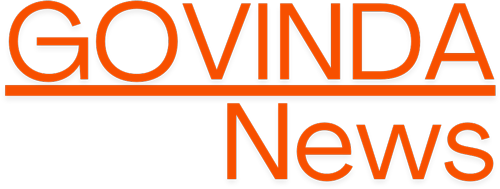In an unexpected development, former U.S.esident Donald Trump has reignited his controversial proposal to make Canada the 51st state of the United States. This offer comes in the wake of Canadian Prime Minister Justin Trudeau’s resignation, a move that has sent shockwaves across Canadian politics. Trump’s renewed proposition has sparked widespread debate on both sides of the border, with political leaders and citizens weighing in on the implications of such an unprecedented union. Trump first floated the idea of incorporating Canada into the United States during his presidency, framing it as a move that could benefit both nations economically and strategically. At the time, his suggestion was largely dismissed as political bluster. However, Trudeau’s sudden departure from office appears to have reinvigorated Trump’s enthusiasm for the concept. Speaking at a rally in Florida, Trump declared, “Canada is in chaos without Justin Trudeau. It’s the perfect time to bring them into the fold. Together, we’d be unstoppable.” Trudeau’s resignation, reportedly for personal reasons, has left Canada at a crossroads. His nearly decade-long tenure was marked by progressive policies, strong environmental initiatives, and a commitment to multilateralism. However, Trudeau’s leadership was not without controversy, with critics accusing him of ethical lapses and a failure to address certain economic disparities. His departure has prompted speculation about the future direction of Canadian politics and who will step into the leadership void. Trump’s renewed offer has been met with mixed reactions. Some American conservatives see it as a bold geopolitical strategy, highlighting the economic benefits of combining the two countries’ vast resources and markets. “Think about it,” one commentator argued on a popular U.S. news program. “Canada has oil, natural resources, and space. Together, we’d be a superpower unlike anything the world has ever seen.” Others, however, view the proposal as an opportunistic and unrealistic power grab.
In Canada, the response has been overwhelmingly skeptical. Prominent political figures, including interim leaders from Canada’s major parties, have dismissed the idea as “absurd” and “unconstitutional.” “Canada is a proud, independent nation,” one senior official stated. “We have no intention of becoming a part of the United States, now or ever.” Many Canadians took to social media to express their opposition, with hashtags like #CanadaStaysCanada trending nationwide. Experts have pointed out the significant legal and logistical hurdles to such a union. For Canada to become the 51st state, it would require both countries to amend their constitutions—a process that would involve years of negotiations and likely face insurmountable opposition. Additionally, Canada’s parliamentary system and social policies, such as universal healthcare, differ vastly from those in the U.S., further complicating the feasibility of integration. Some analysts have suggested that Trump’s proposal is less about genuine intent and more about political theatrics aimed at energizing his base. By framing Canada’s political uncertainty as an opportunity for U.S. dominance, Trump taps into nationalist sentiments and presents himself as a visionary leader on the world stage. “It’s classic Trump,” one political scientist remarked. “Bold statements, grand promises, and a flair for controversy.” Meanwhile, Trudeau’s resignation has spurred discussions about Canada’s political identity and future leadership. Some Canadians see this moment as an opportunity to re-evaluate their nation’s priorities and global role. Others worry that political instability could make Canada vulnerable to external pressures, including propositions like Trump’s. While the notion of Canada becoming the 51st state may seem far-fetched, Trump’s renewed offer has undoubtedly added a new dimension to the political discourse surrounding Trudeau’s resignation. Whether viewed as a serious proposition or a provocative headline-grabber, the idea has reignited conversations about the deep, complex relationship between the United States and Canada. As both nations navigate their respective challenges, one thing is clear: the future of their partnership will remain a subject of intrigue and debate.
The post Trump renews his offer of making Canada 51st state of U.S. after Trudeau resigns first appeared on InfluencersPro.
